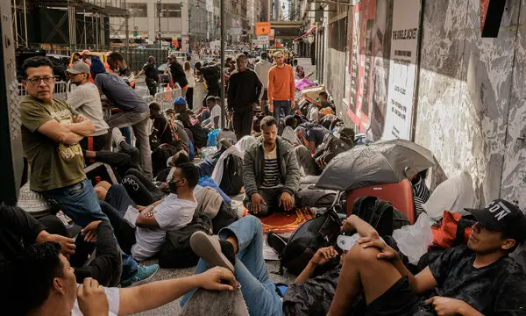Payment is being processed. Please do not refresh or close this page until your payment is complete.
 Book an Appointment
Book an Appointment

A new resolution aims to roll back a Biden-era policy that extended work permit renewals, sparking concerns among immigrants, green card applicants, and H-1B visa holders.
A group of lawmakers has introduced a resolution to repeal a Biden-era rule that extended the automatic renewal period for work permits from 180 days to 540 days. If successful, this move could have major consequences for immigrants, green card applicants, refugees, and spouses of H-1B visa holders.
Why Is There a Push for the Repeal?
Critics argue that the Biden administration’s policy weakens immigration enforcement efforts established in previous years. They also claim that broader immigration policies have compromised border security.
The proposed resolution aims to roll back the work permit extension, which was introduced to prevent employment gaps for non-citizens awaiting permit renewals.
What is the 540-Day Work Permit Extension?
The Department of Homeland Security (DHS) finalized a rule in December 2024, permanently increasing the automatic extension for EADs from 180 to 540 days. This change, effective January 13, 2025, aimed to prevent gaps in employment for eligible non-citizens while their renewals are processed.
Who Qualifies for the 540-Day Auto-Extension?
To be eligible for the extended work permit period, applicants must meet these criteria:
• Timely Renewal Application: Must submit Form I-765 before their current EAD expires.
• Same Work Authorization Category: The renewal application must match the applicant’s existing EAD category or be based on Temporary Protected Status (TPS).
How Would the Repeal Impact Immigrant Workers?
If the 540-day work permit extension is revoked, thousands of foreign workers and their families could face employment disruptions. This is especially concerning for spouses of H-1B and L-1 visa holders:
• L-2 Visa Holders: Automatically authorized to work, but delays in processing could still create complications.
• H-4 Visa Holders: Only eligible for work authorization if their H-1B spouse is on the path to a green card. Delays in processing could result in job losses and financial hardship.
Impact on the H-1B Visa Program
The H-1B visa program remains crucial for the U.S. tech industry, which is already struggling with a labour shortage. In 2023, more than 250,000 H-1B petitions were filed, with over 70% granted to Indian nationals. However, demand continues to outpace supply.
A rollback of the work permit extension could force skilled workers out of the workforce, creating gaps that are difficult to fill.
The Immigration Backlog: A Growing Concern
In addition to industry disruptions, the U.S. faces a significant backlog of employment-based green card applications—over 1.8 million cases are pending. Repealing the work permit extension could lead to:
• Increased Employment Gaps: Many applicants may lose their jobs due to renewal delays.
• Job Security Risks: Work permit expirations could force immigrants out of the workforce.
• Employer Burdens: Companies may struggle with hiring disruptions and increased administrative challenges.
• Family Instability: H-1B spouses reliant on work permits could face financial insecurity.
What’s Next?
As Republican lawmakers push to reverse the 540-day work permit extension, its potential impact on immigrants and the U.S. economy cannot be ignored. With industries already facing labour shortages, removing this provision could create new workforce challenges, leaving businesses scrambling to fill positions.
The final decision on this resolution will determine whether thousands of foreign workers can continue their jobs without interruption—or face renewed uncertainty over their employment future.
Source: https://travelobiz.com/us-540-day-work-permit-extension-under-fire-what-it-means-for-immigrants/